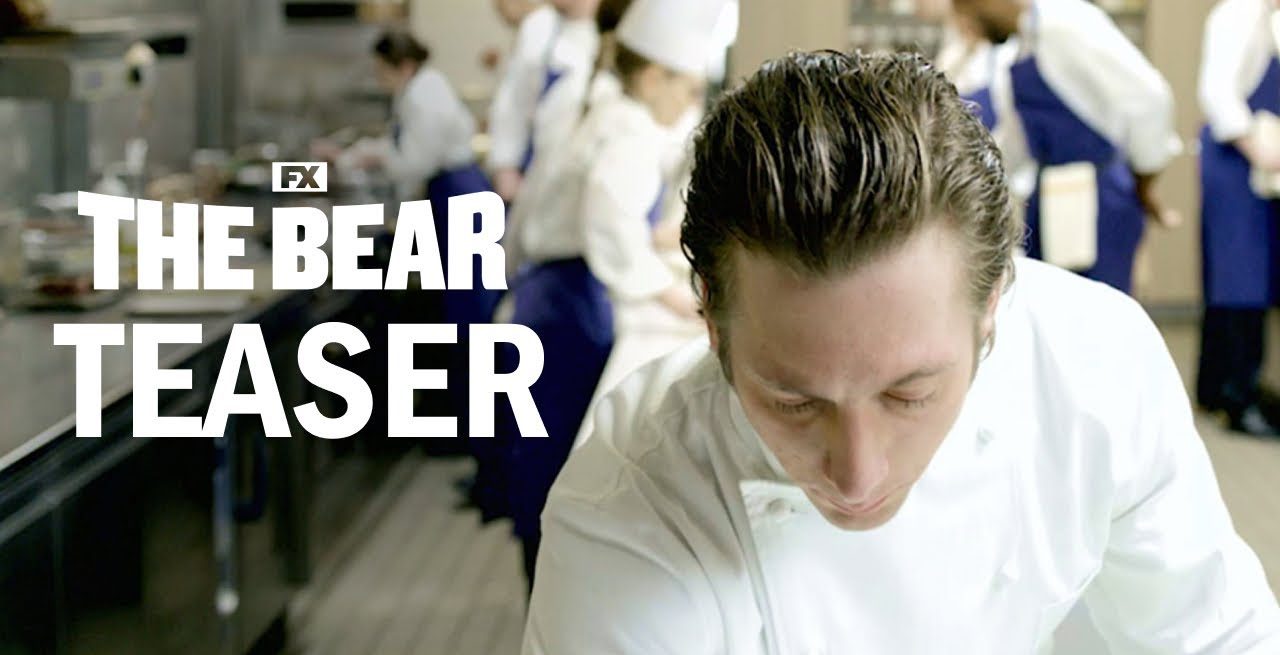Chefs Dish on ‘The Bear’
"The Bear," a new Hulu/FX program portrays the raw reality of restaurant culture Chefs from around the country have commented to Modern Restaurant Management (MRM) magazine on the authentic representation the show gives of life in the kitchen as a chef.
Chef Niven Patel – Three-Time James Beard Nominee, Alpareno Group (Ghee, Orno, Mamey)
You never know what can happen when working in a restaurant kitchen. When we opened Orno, we were hyping up our Sunray Venus Clams to use in our Bucatini. These clams are incredibly rare and we were sourcing them from a local farmer in Florida. Shortly after opening, the farmer couldn't find the clams in the water and we couldn't serve the dish for another nine months. Guests were coming in and requesting the clams we didn't have. It was definitely high-stress at first but we worked together as a team to communicate.
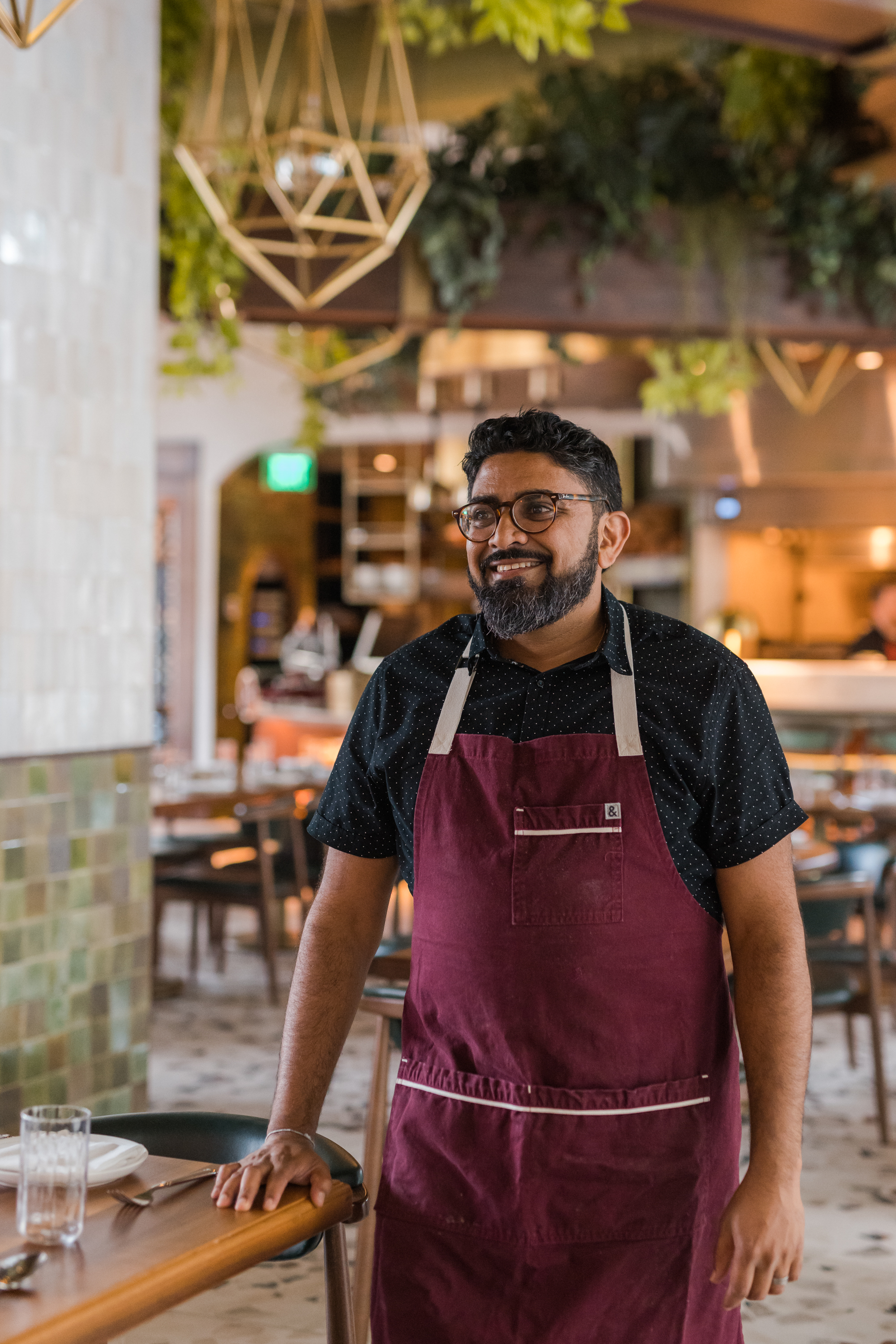
A similar situation happened a few weeks ago when we launched our new Power Hour, offering $1 oysters. On our first day, we had a line out the door of guests and ran out of oysters to sell. It was definitely a learning experience for myself and the rest of the team as we banded together to turn this hectic situation into a positive one. Ultimately, guests left super happy with their experience and that's our number one goal.
Chef Jair Solis – The Restaurant at the Norton
One episode of "The Bear" that resonated with me was the cigarette episode. I’m not a smoker, yet in the beginning of my career I picked up smoking to justify a break and realized shortly after that it was making me sick. The jolt of energy and sense of momentary calmness it gave me wasn’t worth feeling ill. Back in the early 2000’s I worked at a restaurant where the head chef smoked through service. The inspector had become a regular so a lot of rules got bent. This perfectly demonstrates how the industry operated back then. I think a method that can help balance the lifestyle of cooking is the implementation of sous vide cooking – a technique that allows the cook to finish plates in a much shorter time. For example, a sous vide chicken breast takes a total of four to six minutes to cook and serve on a hot plate whereas cooking it raw takes no less than 18 minutes. This style of cooking also aids in prep time and shows the chef different aspects of cooking.
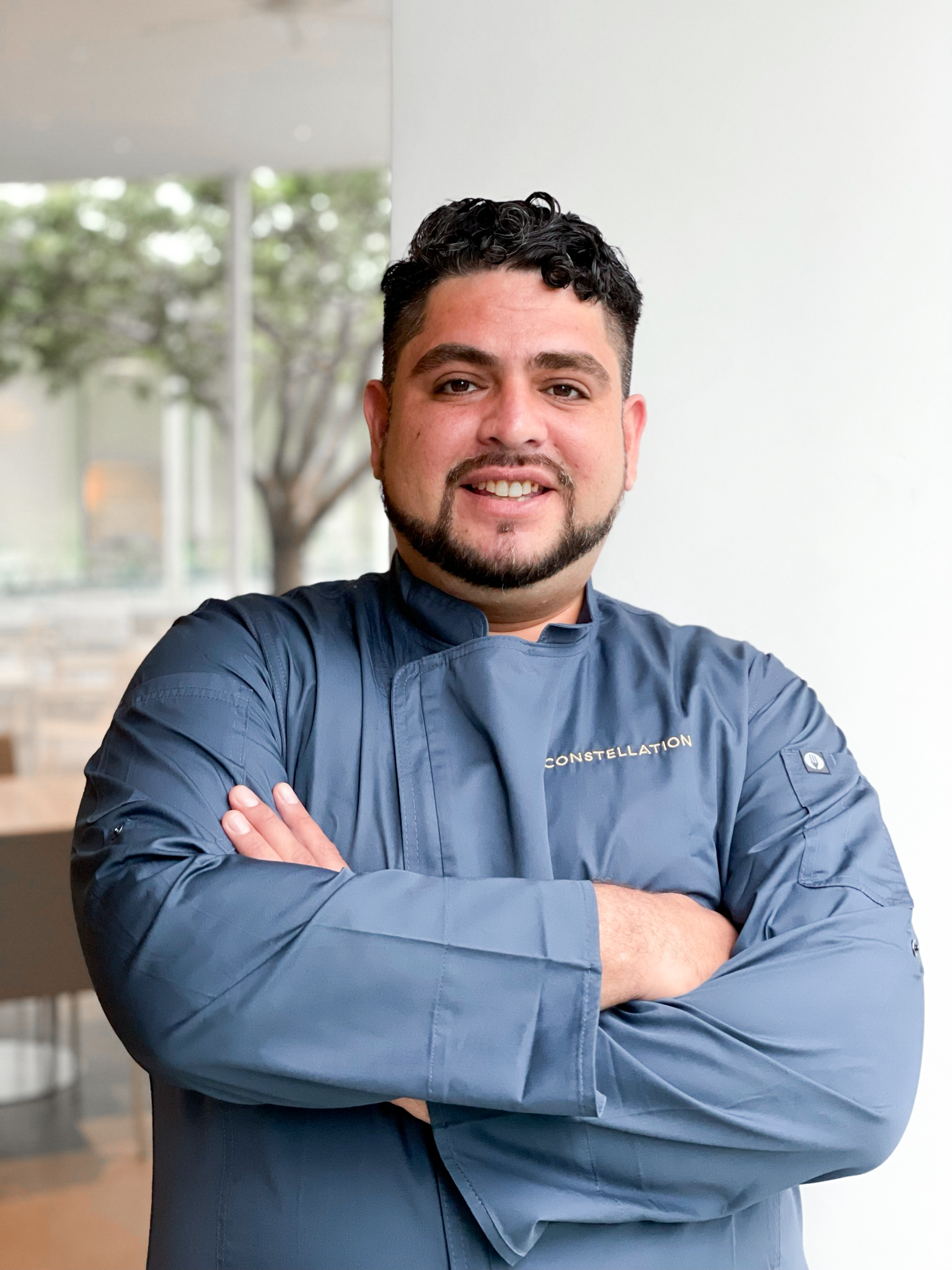
It’s essential to have a steady group of cooks that constantly help each other get better as a team. However, the steady group is very difficult to do in seasonal restaurants or when the employee turn over rate is high. The brigade system is by far the most efficient way to run a kitchen but the old school mannerisms is what needs to change in order to be successful in improving the culture. For a team to accomplish a common goal they must have communication as it is a key factor in relationship building all around. I believe that most cooks who worked in a hostile kitchen environment are looking to change that culture in their own kitchens.
Chef Jose Danger – BRAVA! Constellation Culinary Group
The life of a chef has never been easy one and requires a special type of person who has a high tolerance for stress, an open mind, and an obsessive personality. We look to create new and more wonderful dishes that represent who we are with the best quality ingredients. The last 10 years really changed what being a chef was all about, long gone are the days of the French brigade, that military sense of urgency and dedication to the craft. Now, one must keep up with the fast-paced world of social media, communications, and the internet rather than looking for the best review by a well acclaimed local food critic. For a chef to strive in today's culinary world they need to adopt a new set of tools. From cloud-based inventory processing, app-based ordering, freight tracking and HR management we have adapted a modern way of working with tools that maximize staffing, all while virtually assessing our finances and covering the business needs of our units.
The days of a paper schedule are long gone and now we connect with staff digitally using a scheduling software that helps us manage both time, labor, and finances. Ultimately, it all boils down to staying ahead and being organized, fundamentals that have always been the core of a successful kitchen. Best way of describing it has always been "Mis en place" a place for everything and everything in its place. Our success comes from our hard work and effort as we reflect ourselves through our dishes and the experience we provide to our guests. Without proper organization and well trained staff no tool or magical app will matter. Without good people, good ingredients and a love for the craft, there is no restaurant industry.
Chef Dina Butterfield – Uchi Miami
In previous experiences and back in the day, the mentality in restaurants was to leave everything at the door when you walked into the restaurant, and honestly that was unfair and didn't create the best culture. We spend more time in the restaurant and with each other than in our own home, so at Uchi Miami we make it clear that it is okay to feel sad, have a bad day and communicate your needs.
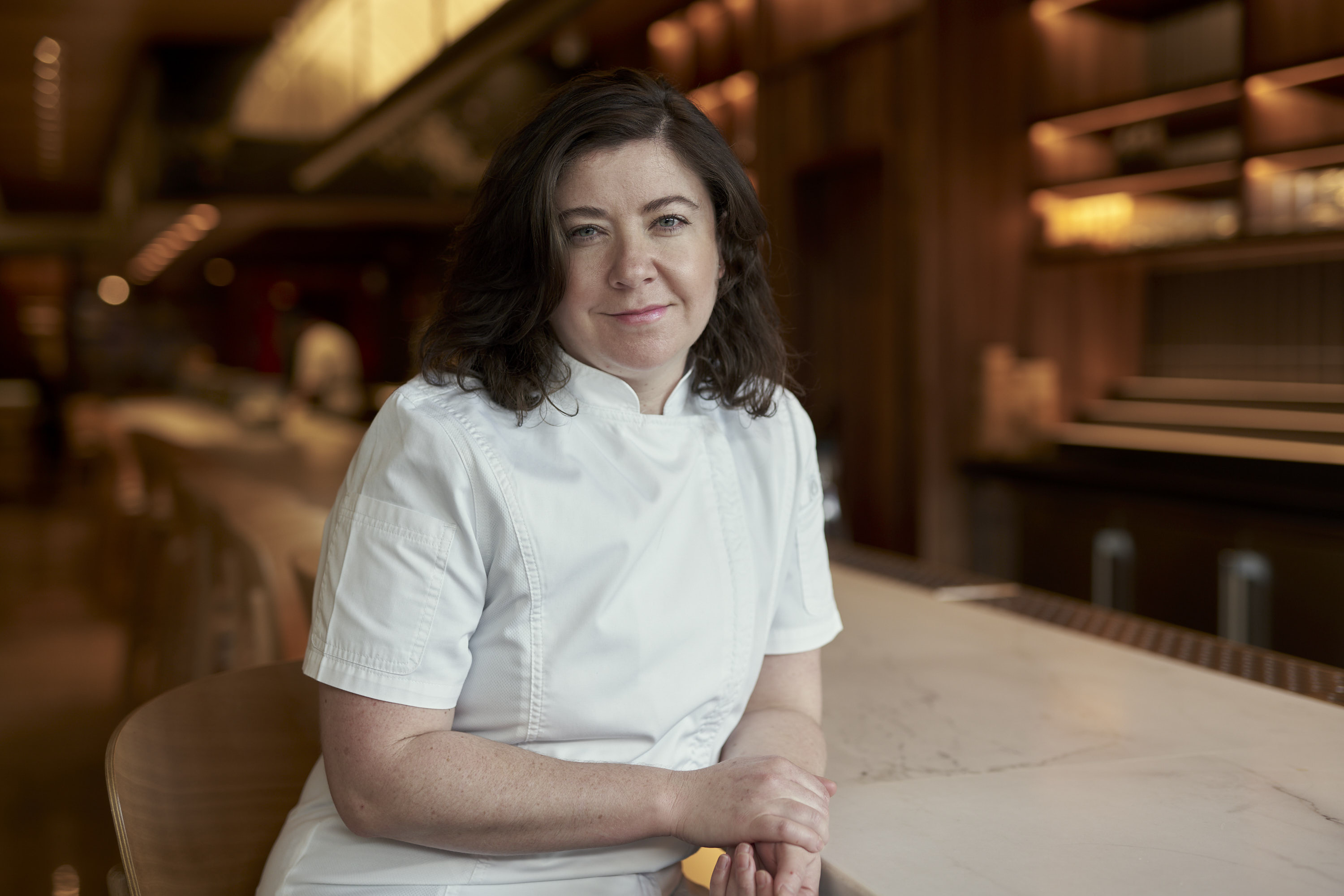
Photo by Ruben Cabrera
A huge thing that makes a difference at Uchi is providing a safe space for our team, whether front or back of house, to have constant communication. In a restaurant, it takes time and effort to build the relationship and break the separation between FOH and BOH, but it is extremely important to know what’s going on, even if you’re not in that position. At Uchi, we have a family meal before every dinner service to encourage communication and camaraderie amongst all of our staff members. We ultimately emphasize providing an open door and feedback to all staff from the beginning to ensure people understand that we are willing and available to help each other.
Chef Matt King – Chief Culinary Officer, PPX Hospitality (Smith & Wollensky, Legal Seafoods, Strega Italiano)
Watching “The Bear” made me immediately think of how I started in the business after culinary school at the CIA. I was working in Florida for a very high-end resort, cutting my teeth in the business when I met a guy who would soon become my mentor. He was tough, his expectations were high and he didn’t have much time for pleasantries. I remember one day standing with him in the main kitchen where we were preparing fondant potatoes (you know the little seven-sided football shapes). While prepping, I made the mistake of making polite conversation. I simply mentioned to him that several of the staff were asking if we were brothers since we looked so much alike. In the incredibly dry way that only he could convey his disappointment with the idea of conversation, he simply said, “I have a brother, you're NOT him” This was immediately followed by my having to finish the potatoes by myself. He taught me so much during my time working with him including his relentless pursuit for perfection, knowing it was never attainable, but I never stopped trying for it.
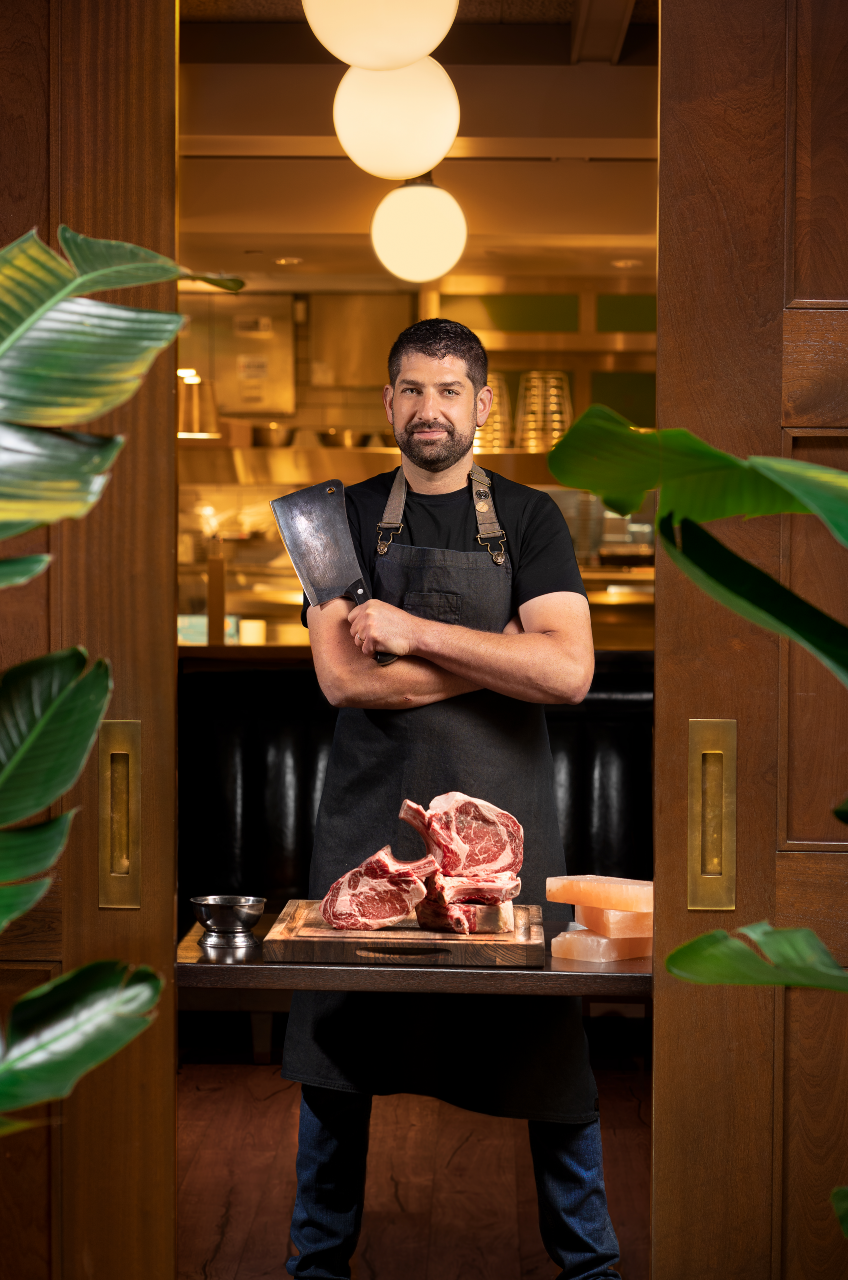
Chef David Hackett – Complex Executive Chef, Caribe Royale & Convention Center
When I first started working in restaurants as a young man, the mystique of the kitchen was very exciting to me. Nowadays chefs are looked at like rockstars but back then cooks and chefs were blue-collar workers – either ex-cons, ex-military, drug addicts, or alcoholics. Pretty much from any other walk of life that did not fit into the normal jobs. I was slightly intimidated by the rough group of guys that were in the kitchen. When I started, I felt a bit of place as I was 16 years old and wanted to be an architect. I did not have any initial interest in cooking but once I started working, I got hooked. The loud excitement of being in the kitchen, the drive, and the passion that those individuals ignited a true love for food for me. I learned that food has so many mediums to play with and express yourself as an artist, there was no turning back.
Chef Joseph McFadden – Executive Chef, Euphoria Fish House at Margaritaville Orlando
“Are you ready for a life like no other?” These were the first words out the chef’s mouth when I walked into my first kitchen job at the age of 14. I replied “maybe” and he laughed and said “don’t worry, you’ll know by the end of the day.” And he was right, actually I knew after a few hours of watching these Rock Stars that this was exactly what I wanted to do. When I started working in the kitchen, I was taken aback but the energy, the loud and chaotic environment but then I realized I am made for it. Over that summer not only did I learn to hold my own on the line, I learned that there are no sick days, no holidays, no birthdays, no Christmas and so on! And this just became the norm. it became a lifestyle. “Only the strong survive” is what the chefs would shout when we were in peak service. Hands burning, feet aching and your mind loving every minute of it! These were different times and as brutal and stressful as it was, I wouldn’t change it for anything. We knew what it took to work in this kitchen and we prided ourselves in being the best in town.
Chef Patrick Keefe – Culinary Director, Legal Sea Foods
The Bear gives a more realistic look into the humble un-glorified work of a chef. Sure it might be a little sensationalized but make no mistake between food, people and facility it shows how much a chef has to manage to stay afloat. Restaurants big and small are a true labor of love. This is why those who are successful can work through the challenges. Some points were so authentic I became almost anxious watching it, I have had my Carmy moments many times in my career. But I couldn't stop watching. Pretty cool show.

